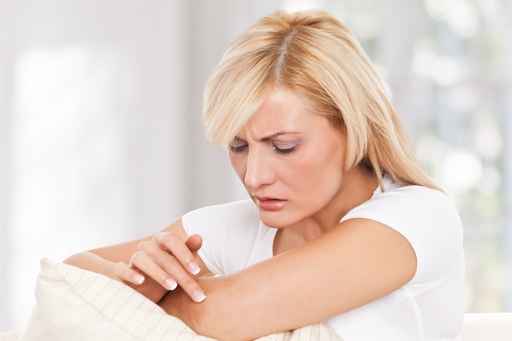What is Eczema?
Eczema (known as atopic dermatitis) is a chronic inflammatory skin condition with symptoms including areas of dry, itching and reddened skin that usually start to appear in a person’s childhood. Atopic Dermatitis is not a contagious disease and can vary in severity and symptoms and is known to flare up or subside from day to day and season to season. It involves patches of skin that may become red, scaly and very itchy, in some circumstances tiny blisters that contain clear fluid can form and weeping may occur which is an indication of infection.
What are the causes of Eczema
Eczema is caused by a person’s inability to repair damage to the skin barrier and is due to a mutation in the gene called “Filaggrin”. A person with this genetic mutation or who have a history of eczema or allergic conditions, including hay fever and asthma are more likely to have this disease and may find that their ability to repair the skin barrier is limited. Once the skin barrier has been disrupted, moisture then leaves the skin, and the skin will become dry and scaly.
What are the symptoms and physical effects of Eczema?
Some of the symptoms of Eczema will include skin dryness, itchiness, red and scaly skin patches, lesions or sores that may become infected by bacteria or viruses, weeping fluid from the affected skin indicating infection.
What are the triggers of Eczema?
There are several factors that trigger eczema which include irritants from a person’s surrounding (known as environmental allergens) that may enter the skin and activate the immune system, this then produces inflammation that makes the skin red and itchy. Such irritants may be from soap, hot water and synthetic fabrics, other factors may involve overheating and humidity, or in rare cases particular foods may be a also be a trigger.
What do I do if I have it?
If you think you have eczema and require more information, or if your current eczema symptoms becomes worse, disrupts your sleep or becomes infected, it is recommended that you see your doctor or dermatologist for advice regarding the best treatment and management for your specific needs.
What treatments are available for Eczema?
With no permanent cure the most important aspect of treating eczema is to suppress the worst symptoms and alleviate the discomfort. A majority of people who suffer from eczema find that their symptoms are made worse by various aspects of day to day life irritants such as hot weather, frequent showering, soap, ducted central heating and overheating in bed at night. Specific creams are available that reduce inflammation and itchiness that your doctor may be able to prescribe.
References
1. http://www.allergy.org.au/patients/skin-allergy/eczema
2. http://www.nps.org.au/publications/consumer/medicinewise-living/2013/what-is-eczema-and-how-can-i-treat-it
3. https://www.betterhealth.vic.gov.au/health/conditionsandtreatments/eczema-atopic-dermatitis
